
Five gritty self-help books that take a different approach to achieving the life you want
From life advice based on the secrets of elite soldiers to the idea that not caring is the path to happiness, these self-help books cast personal improvement in a new light
The self-help industry in the United States alone was valued at almost US$10 billion in 2016, a figure that is expected to rise to US$13.2 billion by 2022, according to data company Research and Markets.
People are clearly eager to spend money on helping themselves, but many today question the validity of the genre entirely, which ranges from self-help books and websites to seminars and personal coaching.
Feeling burned out? You need self-care to beat stress and be happy
A 2011 blog post on the Psychology Today website went so far as to accuse the self-help industry of being a potential “fraud”, and that the books end up doing more harm than good.
Perhaps recognising the growing apathy towards traditional improvement models, the industry has recently been reaching outside the box for fresh new ideas. This has seen a drastic shift from flowery, cookie-cutter offerings about achieving happiness through enlightenment to a more grounded, gritty approach.
Here are five such books redefining how to help us help ourselves – for better or worse.
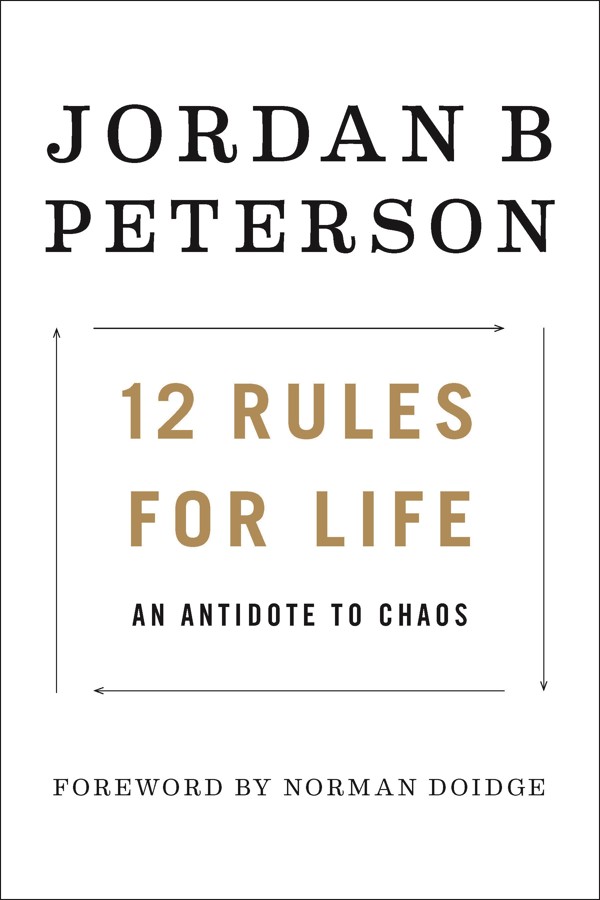
12 Rules for Life: An Antidote to Chaos
by Jordan Peterson
Penguin Random House (2018)
Peterson, a Canadian clinical psychologist and professor, went from virtual nobody to an internet darling in the span of just a few years. His outspoken stances on a variety of issues, including religion, gender, politics and philosophy, have gained him as many followers as detractors.
His second book is a guide to improving one’s quality of life. His approach is to expand on such cliché statements as “stand up straight with your shoulders back” and offer fresh, insightful guidance for today’s modern world. The message is clear: your life is your own making, suffering is inevitable and unless you clean up your act, you should expect to be sad and depressed.
Quote: “You could help direct the world, on its careening trajectory, a bit more toward heaven and a bit more away from hell. Once having understood hell, researched it, so to speak – particularly your own individual hell – you could decide against going there or creating that. You could aim elsewhere. You could, in fact, devote your life to this. That would give you a Meaning, with a capital M.”
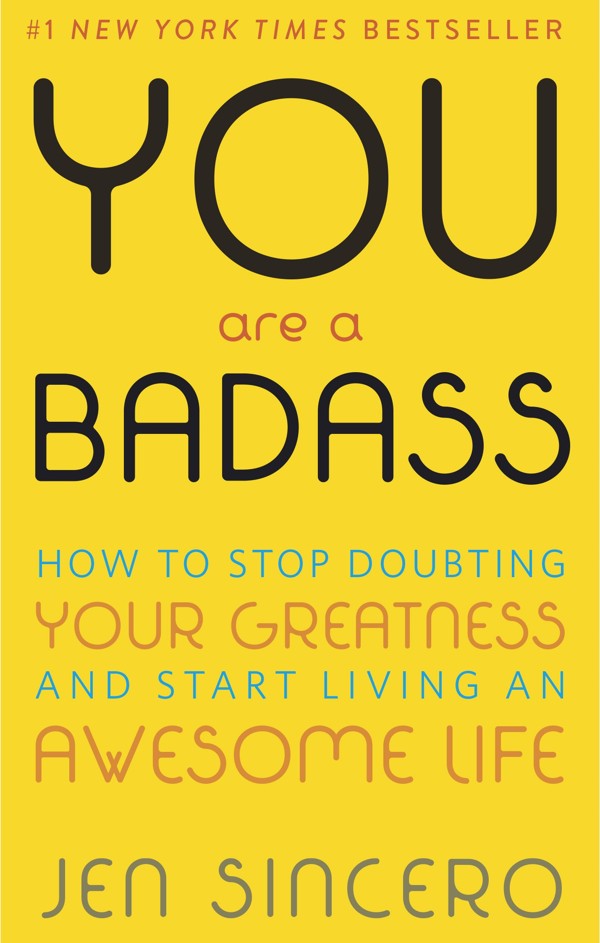
You Are a Badass: How to Stop Doubting Your Greatness and Start Living an Awesome Life
by Jen Sincero
Running Press (2013)
Sincero’s book was a revelation for a lot of people, especially women. Her offering ditched the touchy-feely style countless female-targeting self-help books adopt and went with a no-nonsense manifesto for life improvement.
Her cheeky, funny writing made the book accessible and easy to digest, while also instilling some serious messages, such as transitioning from a “lukewarm life” into that of a rock star. She asked readers to make a choice: either keep “wanting” a better life, or quit whining and get out there to actually change it.
Quote: “Do not waste your precious time giving one single crap about what anybody else thinks of you.”
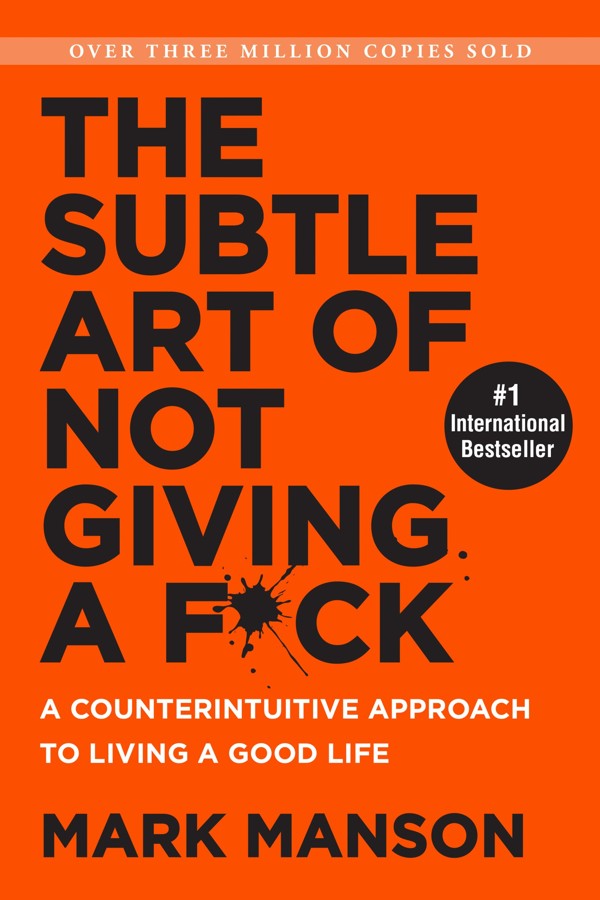
The Subtle Art of Not Giving a F***: A Counterintuitive Approach to Living a Good Life
by Mark Manson
HarperOne (2016)
The title kind of says it all. Manson explains that you only have so much energy to expend in your life, so how do you make sure you’re not exhausting it on small and trivial matters, or wasting time with people you don’t really care about?
The book is littered with a slew of F-bombs (hundreds that is), but the message is trumpeted loud and clear: care less and you will be more free. The idea is applied to every aspect of life, and the nihilistic approach made the book an instant bestseller the world over.
Quote: “You and everyone you know are going to be dead soon. And in the short amount of time between here and there, you have a limited amount of f***s to give. Very few, in fact. And if you go around giving a f*** about everything and everyone without conscious thought or choice – well, then you’re going to get f****d.”
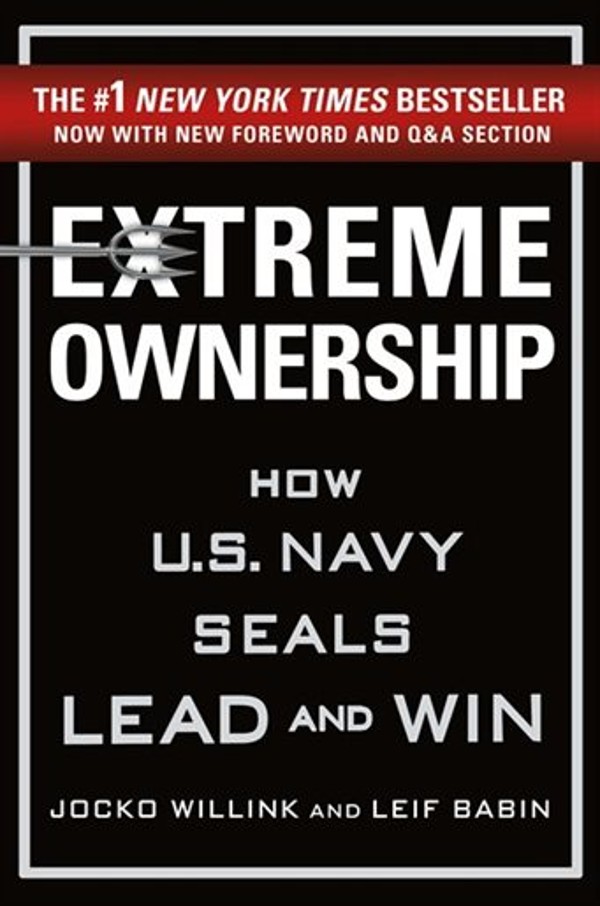
Extreme Ownership: How U.S. Navy Seals Lead and Win
by Jocko Willink and Leif Babin
St. Martin’s Press (2015)
You might think it strange to take advice from former Navy Seals about life and self-help, but the authors’ approach is oddly translatable from the military complex to civilian life.
The mantra is simple: if you don’t take control of your life, someone else, or external forces, will invariably control you. Now apply this to management of a team, and you’ve got a winning formula.
Through powerful military anecdotes, the authors share some of the secrets that Navy Seals use to accomplish gruelling missions only the world’s most elite soldiers could overcome. They claim the mindset can be applied to the boardroom, the office and everyday life and still have the same impact.
Quote: “The test is not a complex one: when the alarm goes off, do you get up out of bed, or do you lie there in comfort and fall back to sleep? If you have the discipline to get out of bed, you win – you pass the test. If you are mentally weak for that moment and you let that weakness keep you in bed, you fail. Though it seems small, that weakness translates to more significant decisions. But if you exercise discipline, that too translates to more substantial elements of your life.”
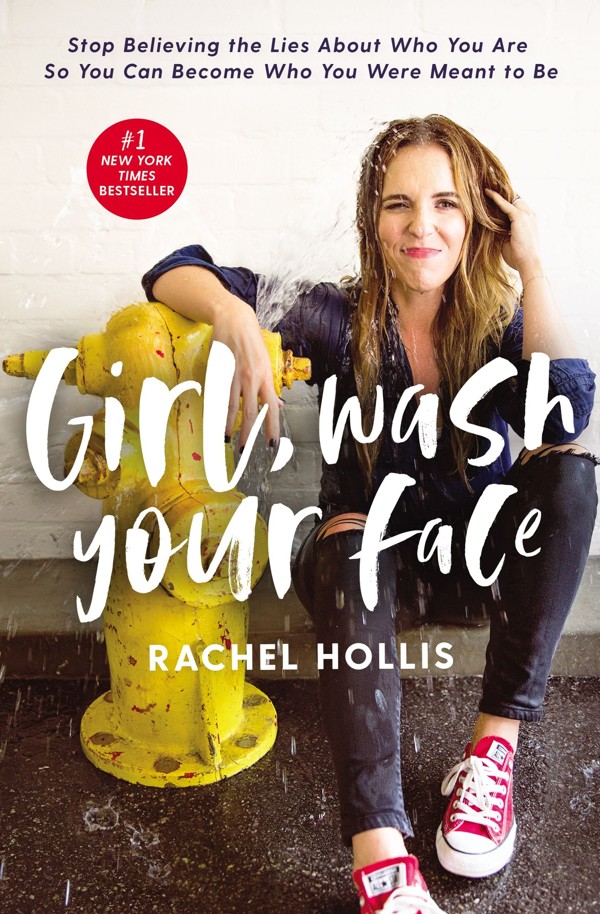
Girl, Wash Your Face: Stop Believing the Lies About Who You Are So You Can Become Who You Were Meant to Be
by Rachel Hollis
Thomas Nelson (2018)
She might be the founder and CEO of her own successful company – lifestyle website TheChicSite.com – but Hollis is also a self-confirmed mess. Her life is far from perfect, quite hectic, often stressful and most definitely not easy.
However it is this truthful approach to the messiness of her life that readers apparently buy the book for. If uber-successful people can be frazzled half the time, maybe it’s OK if you are too? Turns out none of us are perfect, so embrace the chaos and learn to enjoy it.
Well-being and happiness can be learned – here’s how
Quote: “Parent in whatever way works for your family and spend less time worrying about other people’s perceptions of how you’re doing. We should stop being so hard on ourselves and instead focus on the good work we are doing, the results of which are evident in the awesome little people we’re raising.”

